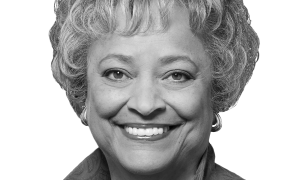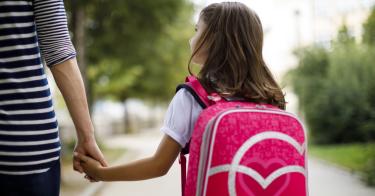Across America, as public schools are choosing to not reopen or to only provide a partial in-person experience this fall, families are struggling to figure out how to ensure their kids get a good education and don't fall further behind.
The good news is, there has never been another time in America so ripe for school choice. Wouldn't it make sense if parents could take a portion of the money that state and local governments spend to educate their children and use it to seek alternatives—like private or parochial school, online education, home schooling, co-ops or other options?
The fact of the matter is, taxpayer dollars spent on public education are meant for the education of students. As such, those dollars should actually fund students, not empty school buildings.
If schools don't reopen this fall, states have an obligation to ensure children have access to other educational opportunities. On average, taxpayers pay $14,000 a year per child for K-12 public education. Allowing parents the option of taking a portion of that money and using it elsewhere is one significant step toward fulfilling that obligation.
School choice seems like an especially critical option as teachers' unions across the country protest school reopenings. Unions want schools to remain closed until their lists of demands are met, yet many of their conditions have absolutely nothing to do with ensuring the safety of children and teachers during the pandemic. Demands include such things as forcing landlords and banks to cancel rent and mortgage payments for individuals, keeping private schools closed and blocking vouchers for school choice.
One egregious example is in Los Angeles, where the LA teachers' union, United Teachers Los Angeles, wants schools to remain closed until the federal government passes "Medicare for All," police are defunded, charter schools that "compete" with the public schools are shut down and more taxpayer funding is allocated to housing for California's homeless, among other demands. The stipulations are part of what the union calls its "groundbreaking research paper" that outlines necessary conditions for safely reopening schools."
Speaking about its list of demands, UTLA's president claimed, "We all want to physically open schools and be back with our students, but lives hang in the balance. Safety has to be the priority."
Sure it does.
If safety is truly the priority, how does defunding the police ensure the safety of our kids? That just doesn't pass the straight-face test.
Of course, defunding the police is not a necessary condition for safely reopening schools. Neither are many of the other demands. Instead, some teachers' unions are shamelessly using schoolchildren and the reopening of schools as bargaining chips to push their unrelated social policy agenda. True school choice would mean that parents and students wouldn't have to be held hostage by political demands.
In addition, any plan to reopen schools needs to be centered on teacher and student safety and providing children a quality education. Decisions must be made based on the science and a school district's ability to consistently follow health and safety protocols, not on the political agendas of special-interest groups.
As a mom, former local school board member, board member of a state board of education and someone who has worked in education policy for much of my career, I am intimately familiar with issues of school safety as well as the conditions necessary to provide a quality educational experience. If schools aren't going to open this fall or plan on offering only an online or partial-classroom experience, the school choice model just makes good sense.
School choice addresses many of the issues we're facing during the coronavirus and provides better educational opportunities for every student—not just during the pandemic, but for generations of students to come. As fall quickly approaches, states must work toward making school choice a reality so students don't fall even further behind. Parents and students need options, and they need them now.
This piece originally appeared in ArcaMax





